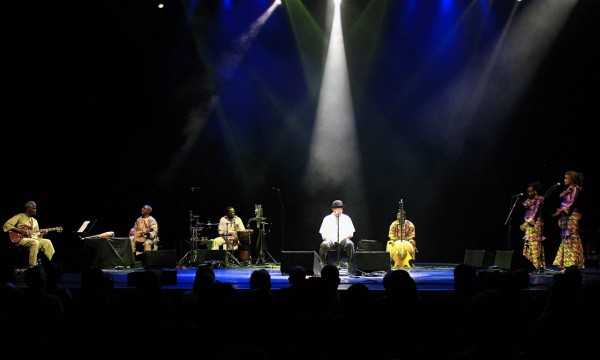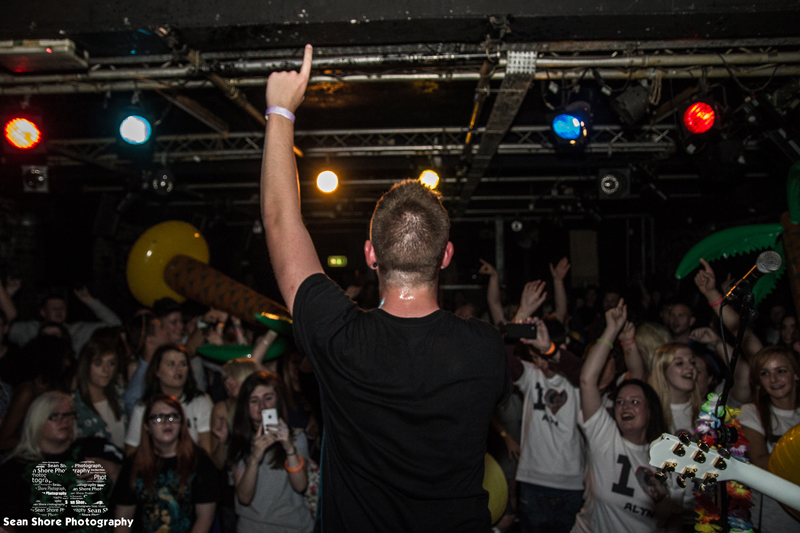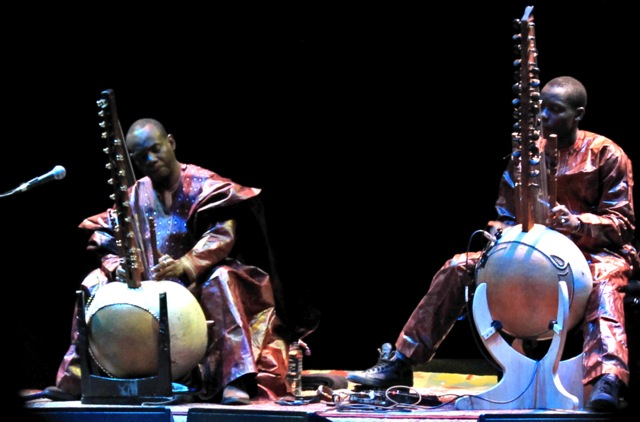Salif Keita + Seckou Keita – Live @ The Barbican
aaamusic | On 11, Apr 2014
Tuesday 8th April, London
“The king and his griots”: even without presentation, you already know, at first glance, who is the one on stage to have “blue blood” in his veins. He is the worthy heir of Sundiata Keita, the founder of the Malian Empire, and among the multitude of epithets which have been bestowed to him, the “Golden Voice of Africa” is the one which represent his figure at best. Salif Keita is still today one, if not the most, influential ambassador of Malian music abroad. The Malian musician embodies both the most traditional and the pop characters of that sound and his thirty-years career is a clear proof.
His latest move, aimed to create a more atmospheric and wistful scenario, is the nth change of direction undertaken by Keita, but no change is unexpected or drastic. His style is always preserved; his emphatic voice is still an inimitable and unmistakable trademark. And the history repeats itself during Keita’s latest gig at the Barbican.
The London illustrious hall seems to have been deliberately dressed up for the occasion. An apparently intimate atmosphere, suffused warm lighting and an audience at ease welcome a unique occasion to enjoy two of the most vivid stars of the African music. Salif Keita and his guest, the Senegalese kora player Seckou Keita, evoke Sahelian sensations, instilling the African bug in every spectator.
The night is opened by Seckou in an entrancing and sensible way: the delicate sound of his kora and his reminiscent voice lull the audience. For the occasion he is alone on stage, he has temporally left behind his band and presents an intimate show, able to set the mood to the evening. Entertaining, peaceful and undoubtedly skilled, the Nottingham-based artist plays with his kora, reviving distant memories and feelings. Creating, despite the paradigmatic instruments, unexpected variations, which recall Latin American flavors and Arabic aromas.
Then it’s the turn of the “king” – seated for most of the time, dispensing few controlled gestures with his hands, dressed in a conventional black-and-white, and talking the bare minimum, Salif Keita is nevertheless able to ooze charisma from every pores. Even if it has been presented under the definition of acoustic, his performance is far from being relaxed.
After the first two literally unplugged songs, the imaginative ‘Folon’ and dreamful ‘Katolon’, Salif and his griots keep in rhythm. The electric guitar of Ousmane Kouyate (an old fellow who has played with Salif since the Ambassadors’ period) the kora, the percussions, the n’goni and the two outstanding vocalists which accompany Keita, speed up the tempo. And, despite some out of place electronic arrangements, the set flows harmonically and rhythmically between old favourites and new tunes.
Salif Keita’s voice is in state of grace, the musicians’ skills are superlative and the setlist is well-built. The audience can indeed enjoy beloved themes like the crowd-pleasing ‘Yamore’ and more “historic” moments like ‘Mandjou’, a song written at the end of the ‘70s. And it is inevitable that, after one hour of warm sensations and musical bliss, the spectators are swooned by the show. They can’t be constrained sitting in their seats further more and finally, on the note of ‘Coucou’ first and ‘Tekere’ later, they jump up dancing and rippling out all around the hall.
The well deserved triumph for a true “king” of the contemporary music scene.
Marco Canepari





